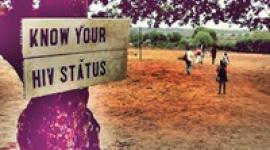Stigma and HIV/AIDS
Stigma is a mark of shame or discredit upon a person or group. It can manifest itself in a variety of ways, from ignoring the needs of a person or group to psychologically or physically harming those who are stigmatized.
HIV/AIDS has been a highly stigmatized illness because of its associations with sexual and drug use behavior and, often, the fact that in many places it disproportionately affects those considered outside the so-called mainstream of society-including men who have sex with men (MSM), sex workers, injection drug users (IDUs), and migrant populations.
Stigma can cause people to perceive individuals with or at risk for HIV as the other ("them"), reinforcing the feeling that HIV "couldn't happen to me." Failure to address stigma can deter individuals from seeking voluntary counseling and testing for HIV and proper medical care. Carrying condoms may be stigmatized by those who view it as evidence of "loose" morals.
Stigma can also perpetuate harmful practices, such as discrimination against or poor treatment of people living with HIV/AIDS (PLHA), MSM, IDUs, or sex workers. Programs that fail to address stigma help perpetuate discriminatory laws and practices and, in some cases, result in failure to enforce laws against them.
APA Reference
Staff, H.
(2021, December 26). Stigma and HIV/AIDS, HealthyPlace. Retrieved
on 2025, April 20 from https://www.healthyplace.com/sex/diseases/stigma-and-hivaids

